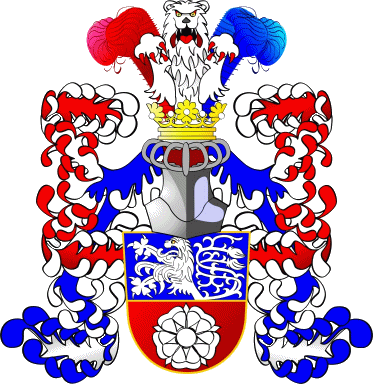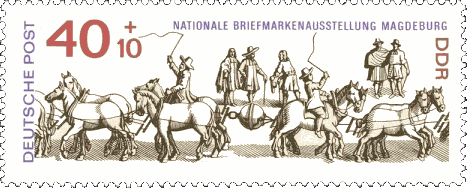The German physicist Otto von Guericke (1602-1686) invented the air pump in 1650.
Blaise Pascal (1623-1662) had established experimentally
the origin of atmospheric pressure only three years earlier (1647)
using the barometer invented in 1644 by
Evangelista Torricelli (1608-1647).
Guericke was also Mayor of Magdeburg.
To demonstrate the might of atmospheric pressure, he built two matching copper bowls
(the Magdeburg hemispheres) 14 inches in diameter,
which could be placed in airtight contact to form a hollow sphere
from which most of the air could be pumped out.
The longitidinal force holding evacuated 14" Magdeburg hemispheres together is obtained as the product
of the atmospheric pressure (about 101325 Pa) into the area of the cross-section
(a disk 14" across has an area of about 0.1 m2 ). This amounts to a force exceeding 10000 N.
This is more than one ton of thrust...
In 1654, the device was demonstrated dramatically before Emperor Ferdinand III and the Imperial Diet at Regensburg:
After Guericke had pumped (most of) the air out of the "Magdeburg sphere",
two teams of horses were not enough to pull apart those hemispheres which only "thin" surrounding air was holding together.



